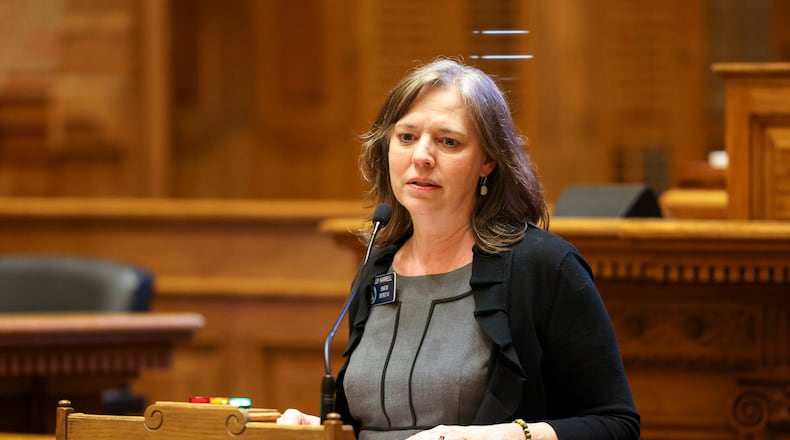Gov. Brian Kemp made it clear he will not support a full expansion of Medicaid for the rest of his second term as governor, but a bipartisan resolution in the Senate urges him to include full-time caregivers for the elderly, sick, and disabled in the Georgia Pathways expansion.
Georgia Pathways to Coverage is Kemp’s alternative system to Medicaid expansion. His plan provides Medicaid coverage to adults whose income falls below the federal poverty line who work at least 80 hours per month, attend a technical college or perform another state-approved activity.
Kemp announced in January that he would seek federal approval to allow parents and legal guardians of children 6 and younger to qualify for Medicaid. State Sen. Sally Harrell, D-Atlanta, said caregivers of older adults should also be included.
“When you’re a caretaker of somebody who’s chronically ill or elderly, maybe with dementia or disabled, it’s a full-time job, and oftentimes, you can’t even go to the grocery store without hiring somebody to come in and watch the person,” she said in an interview with The Atlanta Journal-Constitution.
Because their time is dedicated to a loved one, Harrell said caregivers are in a vulnerable position when it comes to their health.
“They’re tired, and their health always comes second. If they’re uninsured, that’s even worse,” she said. “To deny caretakers access to health care because they’re not working, it just makes no sense to me. In fact, it just seems wrong.”
Medicaid is the federal program that provides health care coverage for low-income children and some adults. The Affordable Care Act gave states the ability to expand Medicaid to adults making up to 138% of the federal poverty level, with the federal government paying 90% of the cost. Georgia is one of 10 states that has not done so.
The Biden administration fought Kemp over the inclusion of a work requirement in the Pathways program. Under the Trump administration, however, requiring Medicaid beneficiaries to prove they are working is back on the table.
“If this is what we have to work with, it makes fixing this even more important,” Harrell said.
The Atlanta Democrat said she reached out to Kemp’s office to discuss her proposal but has not been able to meet with senior staff.
Garrison Douglas, a spokesperson for Kemp, declined to comment on the proposed legislation but said the governor has already worked with the General Assembly on issues relating to family health and “supporting parents who are trying to get back in the workforce.”
Some lawmakers have suggested it may be difficult to prevent fraud if caregiving of older adults is included as an approved work activity. Harrell questioned that logic.
“To deny everybody because you’re afraid that a few people might cheat, the cost is that you hurt the people who really do need the help. That cost seems too high to me,” she said.
There are other efforts in the General Assembly to expand access to Medicaid to discrete groups of Georgians, including those with gestational diabetes and programs that support people trying to quit using tobacco. One bill, filed by Rep. Sharon Cooper, R-Marietta, would provide Medicaid coverage for people living with HIV. The idea came out of a recommendation from the state’s Comprehensive Health Coverage Commission, which released its first report Dec. 1.
The commission is still studying and evaluating traditional Medicaid expansion as part of the its work, but Chair Caylee Noggle said previously that the group needs to stay nimble during “changing dynamics in a federal landscape.”
About the Author
Keep Reading
The Latest
Featured




